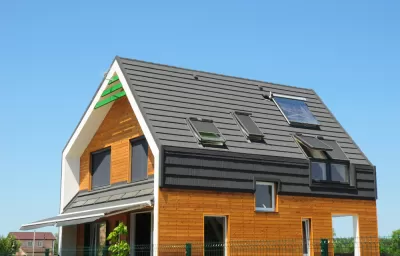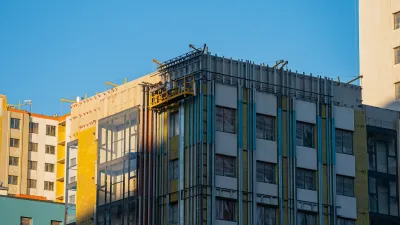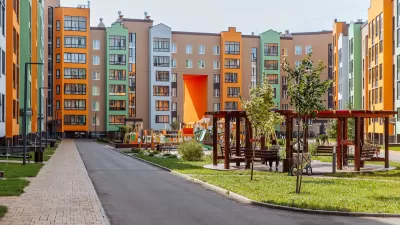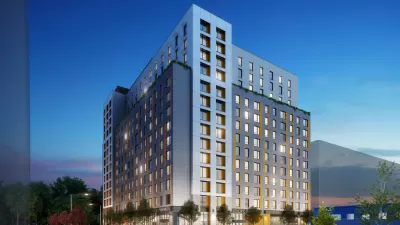Fresh interest in green building among investors, new incentives, and stricter building codes are making it more possible to include green building practices in affordable housing production.

Until recently, housing developers often faced a choice between lower building costs and a lower carbon footprint. “Simply put, the lower the carbon footprint, the higher the cost to build.” But now, writes Allen Feliz, “Thanks to a combination of incentives, the growing popularity of ESG investing and stricter building codes, affordable housing and decarbonization are no longer mutually exclusive.”
As Feliz notes, “Incentives defray costs for both new construction and retrofits. Fannie Mae and Freddie Mac, for example, have robust programs for green financing.” Meanwhile, “Innovations in the works should make decarbonization initiatives and sustainable building less costly. Ravi Malhotra, founder and president of ICAST, offers the example of heat pumps that provide more efficient cooling, space heating and water heating.”
According to the article, ESG (Environmental, Social, and Governance) investing is one boon to green building. “Notably, many of the most prominent investors and lenders in the affordable housing space have strict ESG mandates that influence their funding decisions.” In the near future, “Developers and investors may eventually have no choice but to decarbonize their portfolios and build sustainably, thanks to ever-stricter building codes. California has a Green Building Standards Code. New York City has implemented Local Law 97, which limits operational carbon emissions. Boston has enacted BERDO 2.0, which requires large buildings to reduce their energy and water use.”
Feliz points to a development in Garfield Park, Chicago, built by Preservation of Affordable Housing (POAH) that will met Passive House standards, a set of strict sustainability guidelines, as one example of how sustainable building and affordable housing can coexist.
FULL STORY: Affordable Housing and Decarbonization Are No Longer Mutually Exclusive

Alabama: Trump Terminates Settlements for Black Communities Harmed By Raw Sewage
Trump deemed the landmark civil rights agreement “illegal DEI and environmental justice policy.”

Planetizen Federal Action Tracker
A weekly monitor of how Trump’s orders and actions are impacting planners and planning in America.

The 120 Year Old Tiny Home Villages That Sheltered San Francisco’s Earthquake Refugees
More than a century ago, San Francisco mobilized to house thousands of residents displaced by the 1906 earthquake. Could their strategy offer a model for the present?

In Both Crashes and Crime, Public Transportation is Far Safer than Driving
Contrary to popular assumptions, public transportation has far lower crash and crime rates than automobile travel. For safer communities, improve and encourage transit travel.

Report: Zoning Reforms Should Complement Nashville’s Ambitious Transit Plan
Without reform, restrictive zoning codes will limit the impact of the city’s planned transit expansion and could exclude some of the residents who depend on transit the most.

Judge Orders Release of Frozen IRA, IIJA Funding
The decision is a victory for environmental groups who charged that freezing funds for critical infrastructure and disaster response programs caused “real and irreparable harm” to communities.
Urban Design for Planners 1: Software Tools
This six-course series explores essential urban design concepts using open source software and equips planners with the tools they need to participate fully in the urban design process.
Planning for Universal Design
Learn the tools for implementing Universal Design in planning regulations.
Clanton & Associates, Inc.
Jessamine County Fiscal Court
Institute for Housing and Urban Development Studies (IHS)
City of Grandview
Harvard GSD Executive Education
Toledo-Lucas County Plan Commissions
Salt Lake City
NYU Wagner Graduate School of Public Service





























